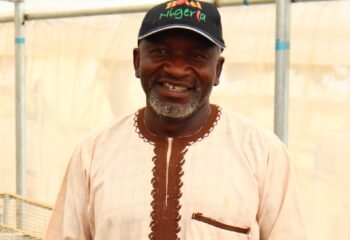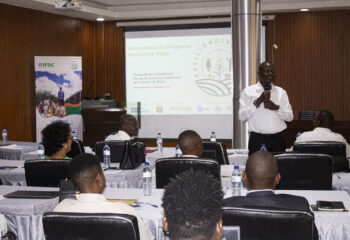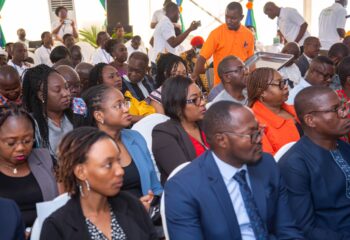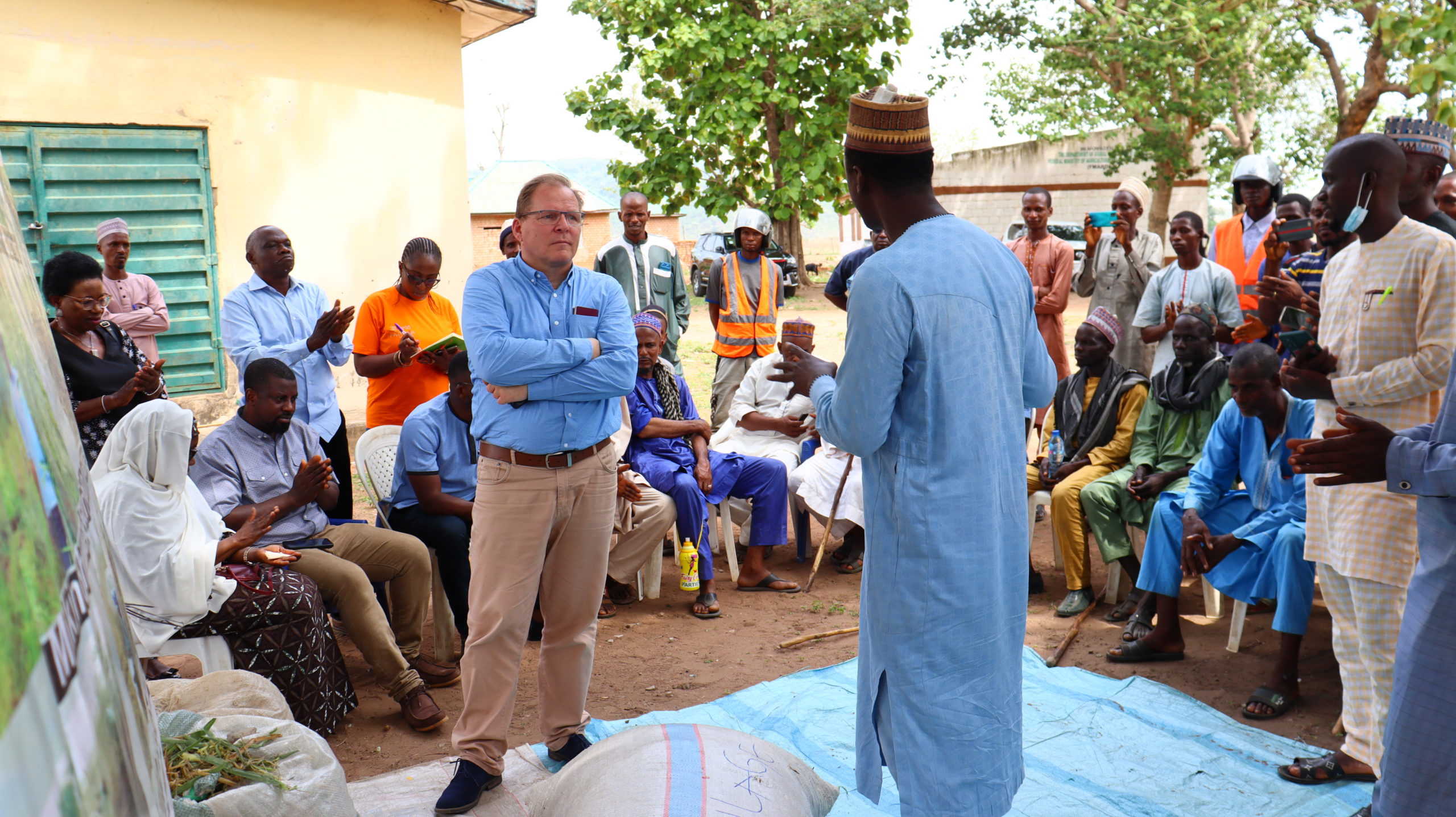
IFDC President and CEO Henk van Duijn visited Nigeria last week from the 10th to 13th of May, 2023, as part of his tour to all 25 countries in which the organization has a presence. The tour was announced after van Duijn assumed his new office in January 2023. Nigeria is the seventh country he has visited so far.
During this visit, van Duijn met with IFDC staff, donors, partners, and beneficiaries. The meeting with the Nigerian team was an interactive session involving questions and answers on the welfare of staff and the president’s vision for IFDC’s mission in Nigeria.
According to Samuel John, a driver for IFDC, “In the more than 10 years that I have worked in IFDC, this is the first time I have had any interaction with a president of our organization.” Furthermore, Feyikemi Adurogbangba, HortiNigeria communications coordinator, stated, “Because we see that he has a heart for the staff, we will respond by doing the work needed to push the organization forward; we will show our appreciation by doing more.”
The meetings with donors were held at their offices, with the objective of fostering existing relationships or introducing IFDC to build new relationships. A meet-and-greet was held with some of IFDC’s implementing partners, and they took this opportunity to praise IFDC’s efforts in pushing the agricultural sector forward and share their expectations.
Employing a sustainable business model is the way to drive development within the sector.
According to Olusegun Falade, managing director of Golden Fertilizer, “We appreciate IFDC’s contributions to the industry; we do not take it for granted. However, we want to understand the vision for IFDC in Nigeria. The big question is ‘what’s next?’ What more does IFDC have to offer? When we determine this, we will know how to work more strategically with the organization.”
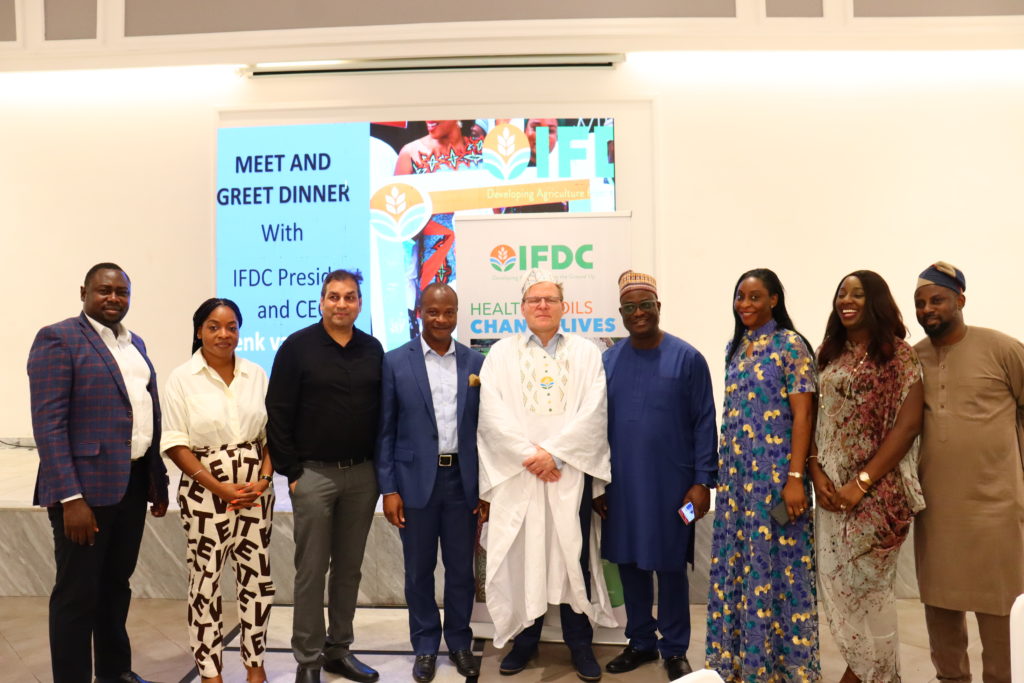
Van Duijn explained that the entrepreneurial spirit in Nigeria is what IFDC will continue to leverage to catalyze agricultural development. According to him, employing a sustainable business model is the way to drive development within the sector. Among the many achievements made in the country, van Duijn explained the need to revisit past works of IFDC in the country, such as the training of government officials on new agricultural technologies and employing alumni to scale the organization’s work in the country.
Van Duijn’s trip ended with a field visit to a Nestlé Milk Collection Center at Paikon-Kore, Gwagwalada, where he met with Nestlé officers and beneficiaries of the 2SCALE program. The tour of the facility enlightened the president and CEO on the milk collection and supply processes.
According to Yusuf Usman, secretary of the dairy union, “We did not realize we were incurring losses in milk production until we started working with IFDC under the 2SCALE program. We lacked the knowledge needed to help us do better. So with the coming of 2SCALE, we have received training that is beneficial to us and the consumers. For example, the training has enabled us to process milk from cows more in a hygienic way. Other training sessions on business management, recordkeeping, and group dynamics have improved the way we do business and create and manage cooperatives. More interestingly, jobs have been created. Some unemployed youths now have jobs that earn them more than $200 monthly. We are grateful to IFDC and the organization’s partners for their work here in Nigeria.”
Hajiya Umma Abubakar, director of animal husbandry services for the Department of Agriculture and Rural Development of Federal Capital Territory (FCT), was also present at the Nestlé Milk Collection Center. She highlighted the achievements the state-level Ministry has had with IFDC and its consortium partners. Because of the high level of youth engagement within the community through the 2SCALE program, Abubakar explained that conflict between the pastoralists and farmers has decreased. However, she noted the need for the Ministry to work with other programs led by IFDC in Nigeria, particularly the HortiNigeria program, as demonstrations are currently being conducted on vegetables within the FCT. These activities must be scaled up to maximize the opportunities across all nodes of the horticultural value chain.
Showing his appreciation for the president and CEO, Yusuf Dramani, IFDC country director of Nigeria, stated that he is delighted to work with him, as there is a lot of work to be done to push agricultural development in Nigeria forward, and with Henk’s excellent leadership, IFDC will attain successful results in the country.

